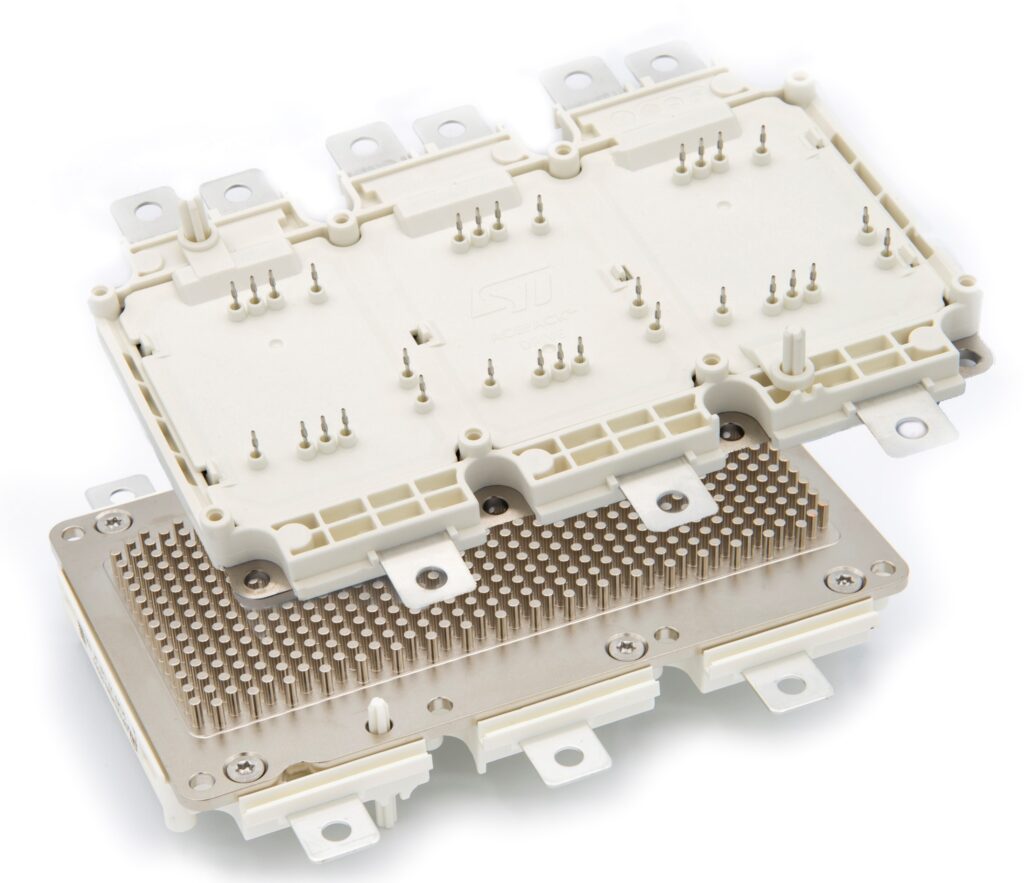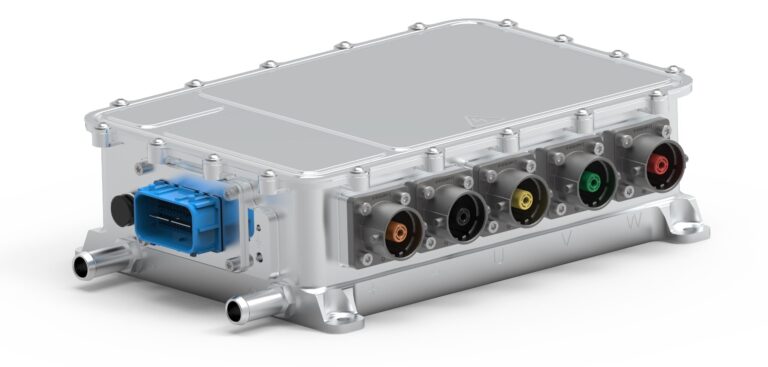McLaren Applied has selected STMicroelectronics (ST) as a key supplier of silicon carbide (SiC) power modules for its next-generation IPG5 800V inverter. UK-based McLaren Applied aims to secure a solid and regular power electronics supply chain as it ramps up production and commercialization of the IPG5 inverter for OEMs and Tier 1 partners.
During the past six months, McLaren Applied has finalized powertrain agreements to supply its IPG5 inverter to Czinger and Elaphe. Additional mid- and high-volume EV models are expected to be announced in the coming months.
The IPG5’s volume is just 3.79 liters and it weighs 5.5kg. It can extend an EV’s range by more than 7%. McLaren Applied’s IPG5 is described as highly controllable while delivering variable switching frequencies and excellent motor response. The variability in switching frequency up to 32kHz enables engineers to use a faster, more efficient, lightweight drivetrain. The IPG5 utilizes the ST Acepack Drive power module based on third-generation 1,200V SiC MOSFET technology.
“Silicon carbide and the need for greater efficiency is absolutely going to be a key trend in the increasing adoption of EV technology,” said Stephen Lambert, head of electrification at McLaren Applied. “Inverter technology is rapidly adopting silicon carbide semiconductors, especially in 800V architectures, and this deal with ST secures access to the best SiC semiconductor technology available today.”
Philippe Prats, head of automotive marketing and application EMEA at STMicroelectronics, commented, “Using the Acepack Drive power module based on SiC MOSFET technology helps McLaren Applied achieve the greatest efficiency and longest driving range possible for their innovative, high-performance powertrain systems.”
The next-generation IPG5 800V silicon carbide inverter can power electric motors to more than 400kW peak and 250kW continuous. The component has been designed for applications within the automotive sector – including direct drive – that are capable of operating high-speed motors efficiently while adhering to ISO 26262 ASIL-D standards.



